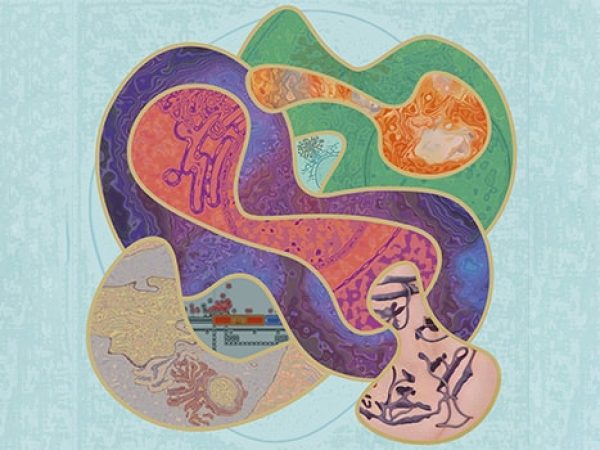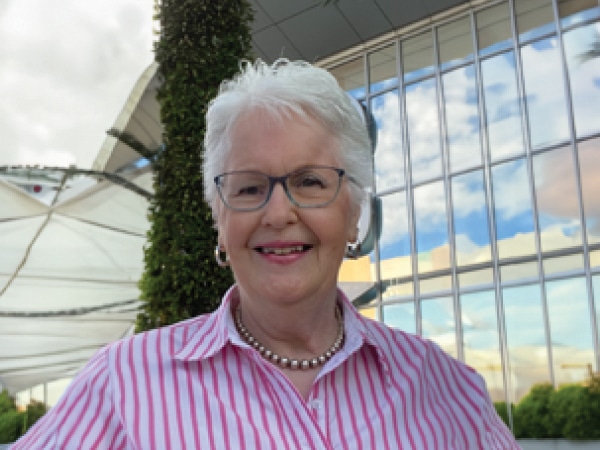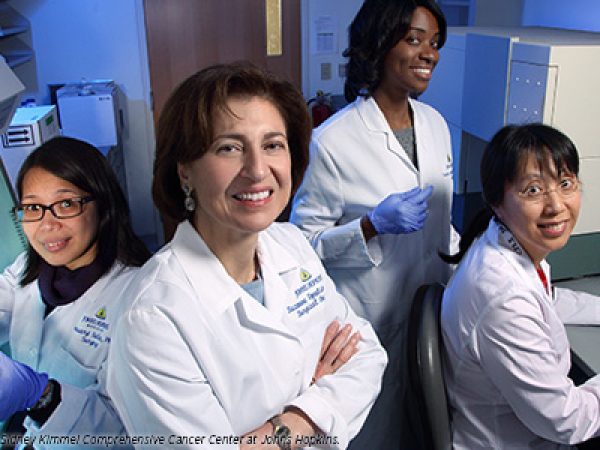Richard Murphy: Thriving Thanks to Cancer Immunotherapy
Diagnosed with stage IV mucosal melanoma, Richard Murphy turned to clinical trials testing immunotherapy treatments after standard approaches failed.
After being diagnosed with a rare form of melanoma – mucosal melanoma – that had metastasized, Richard Murphy’s expectations were low. He simply hoped to live long enough to see his youngest daughter go to kindergarten.
At the time there were few treatments available for patients like Richard. Mucosal melanoma accounts for about 1 percent of all melanoma cases, and for patients with metastatic disease, the prognosis is poor.
Richard’s journey began in 2008. He went to see an ear, nose, and throat doctor for his blocked nose. The ENT saw a “golf ball” sized growth in Richard’s nasal passage. He performed a biopsy that resulted in the diagnosis of mucosal melanoma. Standard treatment is the removal of the tumor, followed by 10 weeks of radiation therapy.

A year after Richard’s initial treatment, a tumor was found in his lung. Scans conducted not long after the lung tumor was removed showed that Richard’s cancer had spread to 15 to 20 additional sites, including his spine.
“My oncologist did everything he could, but finally he said: ‘There is no more conventional medicine that can help you,'” Richard recalled.
The doctor suggested Richard consider clinical trials.
“For me, it was an easy choice because there wasn’t anything else to do,” Richard said.
The initial immunotherapy drug Richard tried, ipilimumab, began to shrink the tumors after several infusions. Ipilimumab, which was approved by the U.S. Food and Drug Administration (FDA) while Richard was participating in the trial and is marketed as Yervoy, worked well for a time, but then the tumors began to grow again.
Cancer immunotherapies harness the patients own immune system to destroy their cancer. This form of treatment is showing great promise and for a number of patients with certain forms of cancer, immunotherapy is yielding great results.
In March 2012, Richard was enrolled in a Merck-sponsored trial for another experimental immunotherapy drug ? a so-called “anti-PD-1 immunotherapy.” At the time, the immunotherapy drug was called MK-3475; it was later known as pembrolizumab, and since its September 2014 FDA approval, it has been marketed as Keytruda.
After five infusions of MK-3475, Richard’s doctors thought his kidneys were failing so he was hospitalized and taken off the drug.
An ultrasound failed to reveal what was going on with Richard’s kidneys but did reveal that his tumors were shrinking. A full set of scans showed that the tumors had shrunk by 50 percent, and a few months later all that the scans showed were shadows where the tumors had been.
“It’s stayed that way, nothing there, after only five infusions. After I was diagnosed, I just hoped I’d see my youngest daughter go to kindergarten. Now maybe I can see her get married,” Richard said.
“The reality is that without cancer research, I wouldn’t be here. I want to help the next person and keep the cause going, so I give speeches to support more funding for research. My wife and I also participate in triathlons to raise money for research: I swim for money. Our team, Tri-ing for a Cure, has raised over $100,000.”
Richard’s story was recently featured in a Wall Stree Journal article on the promise of cancer immunotherapy. You can read Richard’s full story in the AACR Cancer Progress Report 2014.




